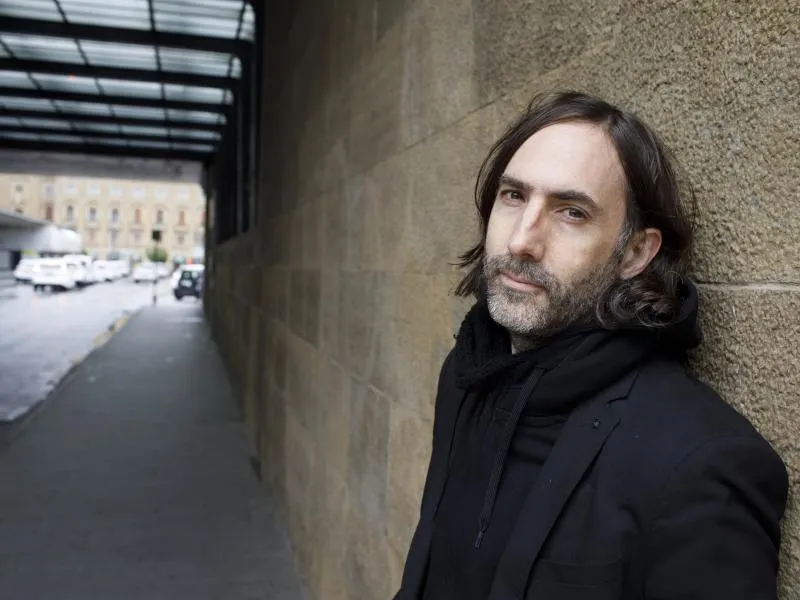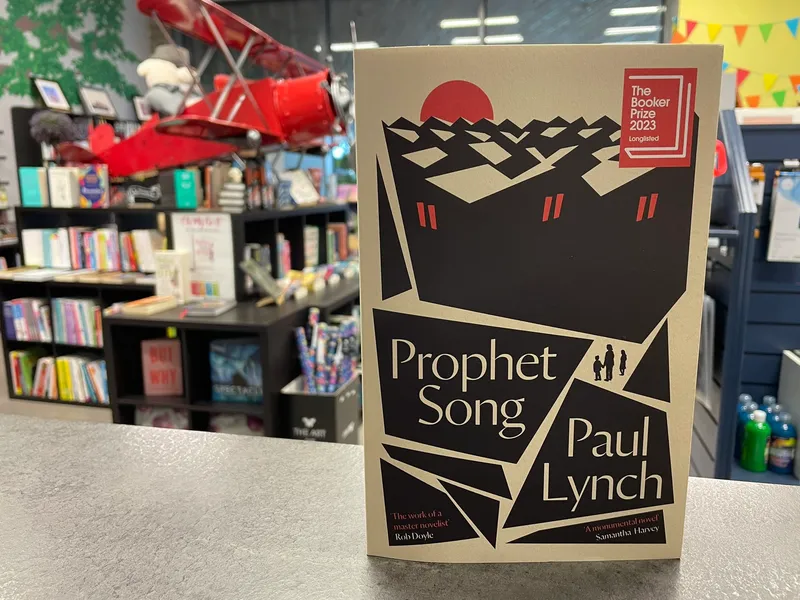Prophet Song is a frightening and gripping read about a struggling mother coping with a dystopian Ireland
In Man Booker Prize nominee book Prophet Song, author Paul Lynch tackles a daunting imagined reality, in the backdrop of a dark political world, with a deft, unrelenting tone.
The Man Booker Prize list is filling in as the conscience keeper of the world as it stands today, in the absence of unified global public opinion. The fact that Paul Lynch’s book Prophet Song has made it to the short list and that his eerie dystopian world for his heroine, Eilish Stack, resonates with readers indicates the power of contemporary literature in questioning the current state of politics.
Uncomfortable and unwieldy spaces marked by violence in all forms–verbal, emotional, natural and physical–bring out Lynch’s fluid writing.
His earlier novel Beyond the Sea (2019) featured the spectre of fear and doom that consumed two fishermen from a South American village stranded in the ocean. Incredibly painful circumstances and a threatened childhood was in focus in Grace (2018), also a novel about Ireland’s painful history during the famine.
Lynch’s poetic style is less visible in Prophet Song, making way for a breathless and starker narrative form. This shift in form heightens the sense of fear and threat, central to the book’s subject.

Paul Lynch | Image source: Basso Cannarsa, bookerprizes.com
Eilish Stack, a microbiologist and a busy mother of four, gets a sense of unease when the Garda (Irish police) arrive at night at her door. Lynch builds the ominous setting from the start.
“Eilish finds her body moving towards the hall with the baby in her arms, she opens the front door and two men are standing before the porch glass almost faceless in the dark. She turns on the porch light and the men are known in an instant from how they are stood, the night-cold air suspiring it seems as she slides open the patio door, the suburban quiet, the rain falling almost unspoken onto St Laurence Street, upon the black car parked in front of the house …”
The Garda want to speak to Larry, her husband and a senior official at the Teachers Union of Ireland. Ireland has changed. A previous crisis has given totalitarian powers to the Garda National Services Bureau.
Democracy is fading out and autocracy is slowly taking over, one vanishing dissenter at a time. Frighteningly, multiple people have emerged as supporters of this repressive regime. Larry and his colleagues face retribution, without recourse offered to them or their families.
As hundreds vanish, and many others are threatened to follow the code of silence, Eilish holds on to a semblance of normalcy for her four children. Her elderly father, who is dealing with the onset of dementia, is also under her care and is the sole person she can confide in.
Total silence is imposed by these emergency powers, who suspend democratic rights to protest without actually telling people this has been done.
A conversation with Eilish's father, also a scientist who has retired now, captures this chilling new reality.
“What you and I call reality, they want to muddy it like water, if you say one thing is another thing and you say it enough times, then it must be so, and if you keep saying it over and over people accept it as true … you’re watching it happen in your own time and not in a book.”
As Eilish must find a way to save her husband, and also protect her children, the sensitivities of a children-filled household add up to show the tremendous pressure she is having to live with.
Dystopia and the altered reality of an intolerant ideology taking power is evident in the works of Margaret Atwood and Cormac McCarthy–the latter is a big influence on Lynch’s work.
In this book, Lynch extends the sense of menace and permanent alteration of reality to a Western country, bringing home the reality of faraway lands like Syria and African nations for an English speaking readership.

Punctuation takes a backseat and sentences become entire paragraphs. The reading process is unrelenting. Eilish’s thoughts and the dialogues between people are merged into a single page or paragraph, making the text dense and without relief.
Lynch’s goal is to awaken a sense of unease and anxiety, and he does it effectively with his style of writing.
As the children grow amidst the threat of war and all encompassing retribution for ‘falling out of line’, the bickering, sulking, and moments of familial love make their struggle real and moving. The elder ones respond differently to this new Ireland, and Eilish can do little to keep the status quo at home.
Lynch’s book is atmospheric and laden with dense prose. It highlights the gradual and visible breakdown of civil society through an iron fisted state and the changed behaviour of people.
Larry and Eilish’s busy, crowded and simple life was happy in its normalcy before the changed political landscape tore it apart. Keeping Eilish’s point of view central through its 300-plus pages, Lynch deliberately highlights the price of losing vigilance and faith in a democratic way of life.
Realistic and enriched with a nuanced portrait of life without freedom of expression, the book’s writing style and context are gripping–definitely not a light read.
The family spins into different forms, out of control but inevitable. Like most shortlisted books, this is also a story of a family at its heart. But Prophet Song is also a relevant, direct awakening of polarised politics and violence in today’s world.
Rating: 4/5
Edited by Swetha Kannan







